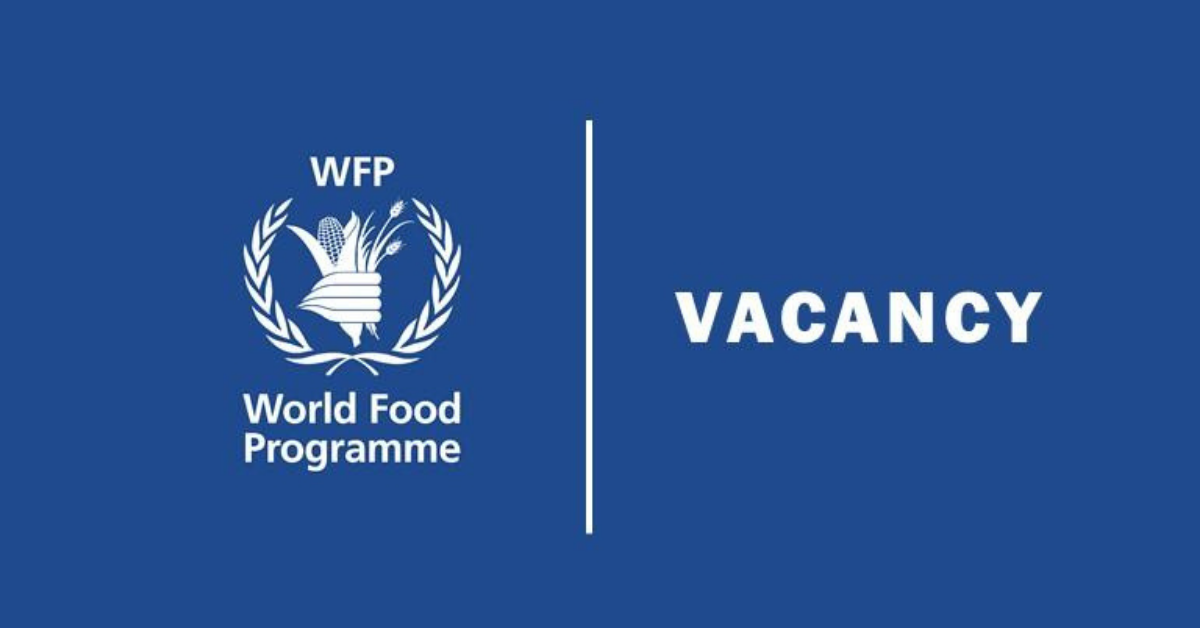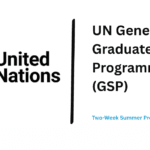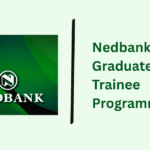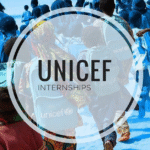Apply for the World Food Programme Graduate Fellowship 2026 and gain hands-on humanitarian experience. Fully sponsored, paid opportunities for Master’s and PhD students, researchers, and graduates. Work with WFP on global hunger and sustainable development initiatives.
World Food Programme (WFP) is offering an exciting opportunity for talented and ambitious young professionals from around the globe to join its Graduate Fellowship Programme 2026. This initiative is designed to cultivate a new generation of leaders committed to humanitarian assistance, sustainable development, and the fight against global hunger.
The fellowship provides a unique platform for highly motivated graduates, Master’s and PhD students, researchers, and academics to work alongside experts in the humanitarian and development fields. Fellows gain hands-on experience, receive professional training, and actively contribute to projects and operations that align with the 2030 Agenda for Sustainable Development.
About the World Food Programme Graduate Fellowship
World Food Programme is the world’s largest humanitarian organization addressing hunger and promoting food security. The fellowship programme reflects WFP’s commitment to nurturing future humanitarian leaders by providing immersive experiences that bridge academic knowledge with real-world impact.
This is not a traditional internship—it is a structured fellowship designed to build skills, expand professional networks, and give fellows the opportunity to contribute meaningfully to WFP’s mission of ending hunger. Fellows are placed in operational or support functions, where they work side by side with WFP professionals on critical projects across different regions.
Who Are WFP Fellows?
Fellows are selected from a diverse pool of Master’s and PhD students, recent graduates, academic researchers, and professors who demonstrate exceptional potential to shape the future of humanitarian work.
These individuals bring advanced technical knowledge, academic rigor, and a passion for global development. They are committed to supporting WFP’s efforts to deliver food assistance, build resilience in vulnerable communities, and strengthen humanitarian systems worldwide.
Ideal candidates typically possess:
- Strong academic backgrounds in fields relevant to WFP’s operations, such as international development, economics, food security, public health, logistics, social sciences, or related disciplines.
- A demonstrated interest in humanitarian issues, sustainable development, or global policy.
- Excellent interpersonal and analytical skills, combined with cultural sensitivity and a collaborative mindset.
What Do Fellows Do at WFP?
The WFP Graduate Fellowship is a hands-on, high-impact experience. Fellows are placed in various WFP offices—country, regional, or headquarters—where they support critical functions that enable the organization to achieve its objectives. Depending on the placement, fellows may engage in one or more of the following areas:
- Donor Relations: Supporting WFP in its engagement with governments, foundations, and private sector partners to secure resources and funding for humanitarian operations.
- Policy Development: Contributing to the design, evaluation, and enhancement of policies that guide WFP’s global strategies and operational frameworks.
- Humanitarian Finance: Assisting with budgeting, financial tracking, resource allocation, and reporting to ensure funds are used effectively.
- Programme Design: Supporting the development of new humanitarian or development programmes tailored to the needs of vulnerable communities.
- Proposal Development: Helping to prepare funding proposals, concept notes, and strategy papers for resource mobilization.
- Research and Analysis: Conducting research on emerging global challenges, food security trends, and humanitarian response mechanisms.
Through this work, fellows gain practical skills in project management, policy analysis, cross-cultural collaboration, and field operations—preparing them for leadership roles in the global humanitarian and development sector.
Benefits of the WFP Fellowship Programme
While WFP does not provide direct financial support to fellows, the fellowship is fully funded through external sponsorship. Fellows receive comprehensive support from their sponsoring institutions—usually academic institutions, government agencies, or research organizations—that have established a Fellowship Partnership Agreement with WFP.
Typical benefits include:
- Monthly Stipend: Fellows receive financial support to cover living expenses during their assignment.
- Travel Support: Sponsoring entities cover round-trip appointment and repatriation travel costs.
- Accommodation: Many fellows receive housing support or a housing allowance.
- Visa and Insurance: Visa fees, medical insurance, and related administrative costs are typically covered.
- Professional Development: Fellows have access to training sessions, learning resources, and mentorship from WFP professionals.
- Global Networking: Exposure to an international work environment and opportunities to connect with experts, partners, and peers.
This level of support ensures that fellows can fully focus on their assignments and professional growth throughout the programme.
Duration and Locations for World Food Programme Graduate Fellowship 2026
The WFP Fellowship Programme 2026 is flexible and globally accessible. Placements are offered:
- At country offices supporting direct operations in food assistance and humanitarian response.
- At regional bureaux focusing on coordination, technical support, and strategic initiatives.
- At headquarters for exposure to global policy, strategy, and high-level operational support.
Fellowship assignments typically last between 3 to 12 months, depending on the scope of work, project needs, and the sponsoring entity’s arrangements.
Eligibility Requirements
To be considered for the fellowship, applicants must meet specific eligibility criteria that ensure they can contribute effectively to WFP’s mission and benefit fully from the programme:
- Academic Background:
- Be a Master’s or PhD student, graduate, researcher, or professor with strong technical knowledge in one of WFP’s areas of work.
- Must have completed at least an undergraduate programme.
- Sponsorship:
- Be financially sponsored by a recognized academic institution, research organization, or governmental body that has an existing Fellowship Partnership Agreement with WFP.
- Language Proficiency:
- Fluency in English is required.
- Knowledge of other WFP official and working languages (French, Spanish, Arabic, Chinese, or Russian) is an asset and may be mandatory for certain duty stations.
- Technical Skills:
- Proficiency in Microsoft Office (Windows) and other relevant software.
- Strong analytical, communication, and teamwork abilities.
- Behavioral Standards:
- Adherence to WFP’s Leadership Framework and Common Standards of Behaviour.
- Ability to work effectively in multicultural and multidisciplinary teams.
- Additional Requirements:
- No immediate family members (parents, siblings) employed by WFP.
- Additional eligibility conditions may be set by the sponsoring entity.
How to Apply for the WFP Fellowship Programme 2026
The application process for the WFP Graduate Fellowship Programme 2026 is designed to be competitive but straightforward. Applicants are encouraged to prepare well in advance:
Step 1: Confirm Sponsorship
Since fellows must be sponsored, applicants should secure sponsorship from an eligible academic institution, research body, or governmental agency. Only candidates with valid sponsorship agreements can proceed.
Step 2: Explore Opportunities
WFP fellowships are announced on various platforms, including WFP’s official careers portal and partner institutions. Applicants should review available opportunities to identify placements that match their expertise and interests.
Follow Our Social Media Pages
Join Our WhatsApp Group
Join Our WhatsApp Channel
Follow Our Facebook Page
Related Posts
- UNICEF Climate Resilience Internship 2026 – Paid Global Opportunity for Graduates
- World Bank Summer Internship Program 2025 – Fully Funded
- UNDP Research Fellowship 2025 – Global Opportunities for Graduates
- Gates Foundation Internship Program 2025 – Apply for Global Roles
Step 3: Prepare Application Materials
Typical application requirements include:
- A CV or résumé highlighting academic and professional experience.
- A motivation letter outlining interest in the fellowship and alignment with WFP’s mission.
- Proof of sponsorship or a letter of support from the sponsoring entity.
- Relevant academic transcripts or certificates.
Step 4: Submit the Application
Applications are typically submitted online through the WFP careers portal or through sponsoring entities’ internal systems.
Step 5: Selection and Placement
Shortlisted candidates undergo interviews and assessments. Successful applicants are matched with WFP offices based on skills, interests, and organizational needs.
Professional Development Opportunities
WFP fellowships are structured to foster learning and capacity building. Fellows benefit from:
- Mentorship: Close guidance from experienced WFP staff and managers.
- Learning Resources: Access to internal training platforms, workshops, and online courses.
- Exposure to Global Challenges: Real-world engagement with humanitarian response, policy formulation, and operational delivery.
- Career Pathways: Enhanced prospects for future roles in international development, UN agencies, NGOs, and government sectors.
Many former fellows have gone on to secure positions in WFP, other UN agencies, or international NGOs, leveraging their fellowship experience to build meaningful humanitarian careers.
Impact of the Fellowship Programme
The WFP Fellowship Programme not only empowers young professionals but also strengthens WFP’s operational capacity. Fellows bring fresh perspectives, innovative ideas, and research-based insights that enhance humanitarian response strategies.
This collaborative approach supports WFP’s mission to achieve Zero Hunger and contributes to several Sustainable Development Goals (SDGs), particularly SDG 2: Zero Hunger and SDG 17: Partnerships for the Goals.
Meta Description
Apply for the World Food Programme Graduate Fellowship 2026 and gain hands-on humanitarian experience. Fully sponsored, paid opportunities for Master’s and PhD students, researchers, and graduates. Work with WFP on global hunger and sustainable development initiatives.
Frequently Asked Questions (FAQ)
1. Who can apply for the WFP Graduate Fellowship Programme 2026?
Master’s and PhD students, recent graduates, researchers, and professors with relevant academic backgrounds can apply. Candidates must be sponsored by an academic, research, or government institution.
2. Is the fellowship paid?
Yes, fellows receive financial support from their sponsoring institutions. This typically covers stipends, travel, accommodation, visas, insurance, and other related costs.
3. How long does the fellowship last?
Fellowships generally last between 3 and 12 months, depending on the specific project and sponsoring institution.
4. Where are fellows placed?
Fellows can be assigned to WFP’s country offices, regional bureaux, or headquarters, depending on their skills and project needs.
5. Do I need to speak another language besides English?
Fluency in English is mandatory. Additional language skills (French, Spanish, Arabic, etc.) are considered an asset and may be required at some duty stations.
6. Can the fellowship lead to a career at WFP?
Yes. Many fellows use the experience as a stepping stone to future employment at WFP or other international organizations.
7. Does WFP provide direct funding?
No. WFP does not provide direct financial support. Fellows must be sponsored by an eligible institution or organization.
Keywords
WFP Fellowship 2026, World Food Programme graduate opportunities, humanitarian fellowships, paid fellowships for graduates, international development fellowships, UN fellowship programme, zero hunger initiatives, humanitarian assistance careers, global development training, sustainable development fellowships, research fellowships, fully funded international fellowships, graduate humanitarian jobs, WFP training opportunities, fellowship eligibility criteria, how to apply for WFP fellowship, professional development, international humanitarian careers, SDG 2 Zero Hunger, 2030 Agenda for Sustainable Development







